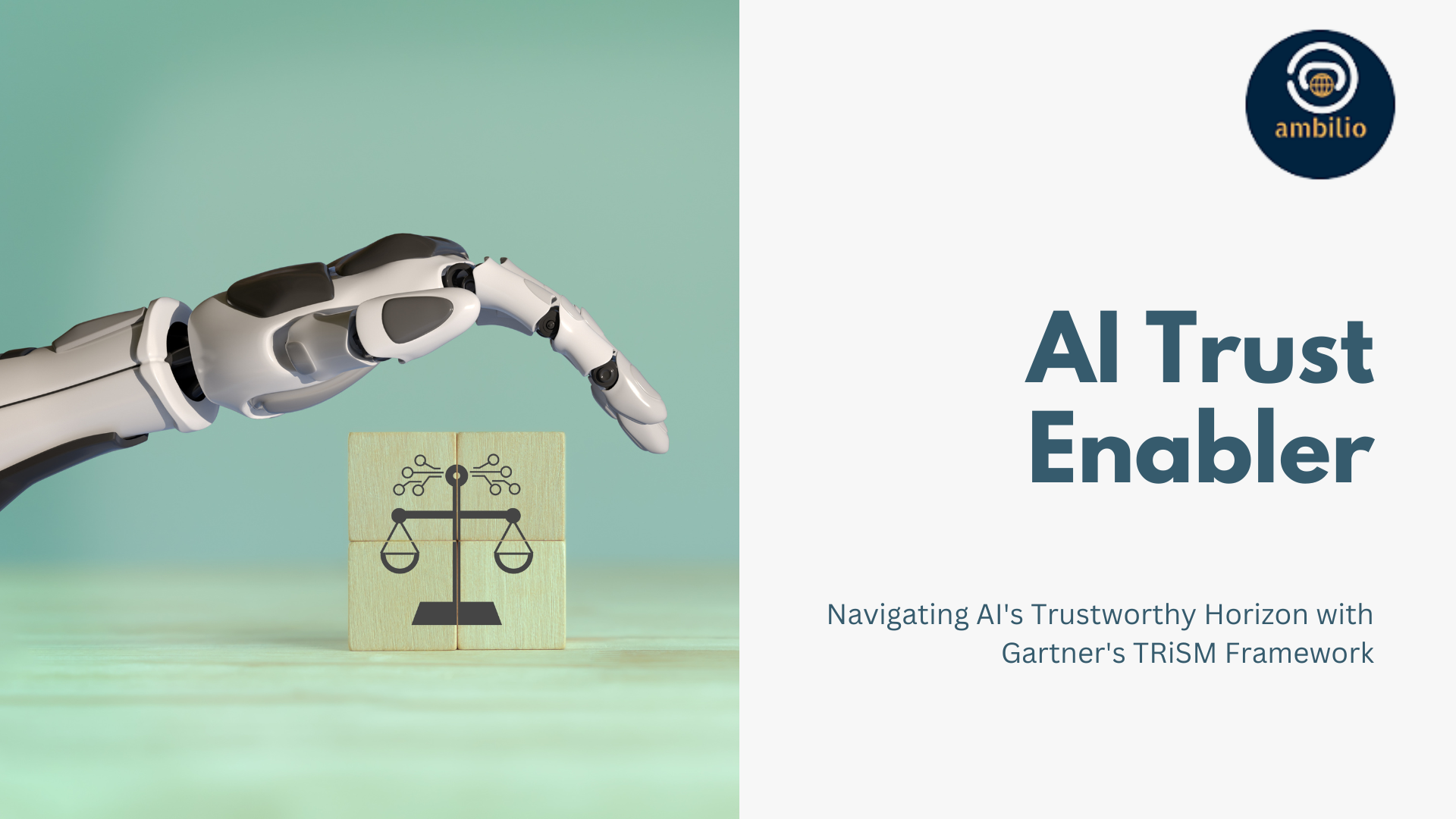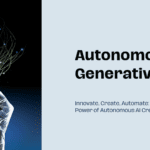Artificial Intelligence (AI) has rapidly woven itself into our lives, transforming industries and shaping our digital landscape. However, concerns surrounding trust, fairness, and reliability of AI applications persist. To address these challenges, Gartner has devised the AI TRiSM framework – a comprehensive approach that ensures AI models prioritize trustworthiness, reliability, fairness, efficacy, and privacy. Understanding and implementing this framework not only mitigates risks but also enhances user acceptance and trust in AI systems.
Model Governance: Building a Foundation of Trust
Model Governance serves as the bedrock of trust within the AI TRiSM framework. Its emphasis on structured oversight guarantees transparency and accountability across the AI lifecycle. This element enables organizations, such as financial institutions using AI for credit scoring, to meet regulatory requirements by offering clear insights into decision-making. Users benefit from comprehending the rationale behind credit assessments, fostering confidence and trust in the system.
For instance, by elucidating the factors influencing credit decisions, these institutions establish transparency, enhancing user trust in the fairness and reliability of AI-driven processes. This governance framework not only assures regulatory compliance but also cultivates a sense of reliability and understanding, crucial for user acceptance and confidence in AI systems.
Reliability: Ensuring Consistent Performance
Reliability, a cornerstone of AI TRiSM, underscores the necessity of consistent performance regardless of variables. This framework prioritizes AI systems that maintain accuracy across diverse datasets and scenarios. Take, for instance, a healthcare AI entrusted with disease diagnosis. Its reliability guarantees unwavering accuracy, fostering trust among both medical practitioners and patients.
Consistent delivery of precise diagnoses underscores the system’s dependability, reassuring professionals in their decision-making and instilling confidence in patients. By upholding such steadfastness, the AI TRiSM framework not only bolsters reliability but also cultivates a culture of trust and assurance in AI-driven healthcare, highlighting the framework’s commitment to unwavering performance in critical applications.
Fairness: Mitigating Biases for Equitable Outcomes
In the realm of AI, bias remains a significant challenge. Gartner’s framework prioritizes Fairness to counter biases that could result in discriminatory consequences. This emphasis on Fairness is particularly pivotal in recruitment AI tools where unbiased candidate evaluations are imperative. By employing Fairness principles, these tools ensure impartial assessments, offering equal opportunities regardless of gender, race, or ethnicity.
For instance, by scrutinizing AI-driven recruitment processes, the TRiSM framework actively mitigates biases that might favor specific demographics, fostering an environment of inclusivity and equal opportunity. Ultimately, the incorporation of Fairness not only combats bias in AI models but also promotes ethical decision-making, reinforcing trust and confidence in AI systems among users and stakeholders.
Efficacy: Driving Purposeful Results
Efficacy stands as a guiding principle within the TRiSM framework, ensuring that AI models accomplish their goals with precision and efficiency. Consider AI-powered chatbots utilized in customer service—a prime example where alignment with TRiSM principles enhances user experience. By integrating this framework, organizations can guarantee that these chatbots provide accurate and valuable responses. This precision not only elevates user satisfaction but also fortifies trust in the AI’s capabilities.
When these chatbots consistently deliver purposeful assistance, users recognize the reliability of AI-driven support, fostering a sense of trust and reliance on such systems. Therefore, by prioritizing efficacy, the TRiSM framework not only enhances the efficiency of AI applications but also amplifies user trust and satisfaction in their interactions with AI technology.
Privacy: Safeguarding Sensitive Information
The Privacy pillar within TRiSM is fundamental in upholding data protection regulations and safeguarding sensitive information within AI systems. Consider AI-driven healthcare apps as an illustration. Adhering to the TRiSM Privacy guidelines, these apps meticulously collect and analyze patient data while strictly abiding by privacy laws. This stringent approach assures users of the utmost care in handling their sensitive information.
By prioritizing privacy measures, such as data encryption and restricted access protocols, AI systems instil confidence in users regarding the security of their personal data. In essence, by embracing the Privacy pillar, the TRiSM framework not only ensures compliance with regulations but also cultivates a culture of trust and assurance among users, reinforcing the commitment to safeguarding sensitive information in AI applications.
Conclusion
The Gartner TRiSM framework emerges as a beacon of guidance for organizations navigating the complexities of AI deployment. By embracing its pillars of Model Governance, Reliability, Fairness, Efficacy, and Privacy, businesses can develop AI applications that prioritize trust, fairness, and reliability. These ethically sound and transparent systems not only mitigate risks but also pave the way for greater user acceptance and trust in AI technologies.



